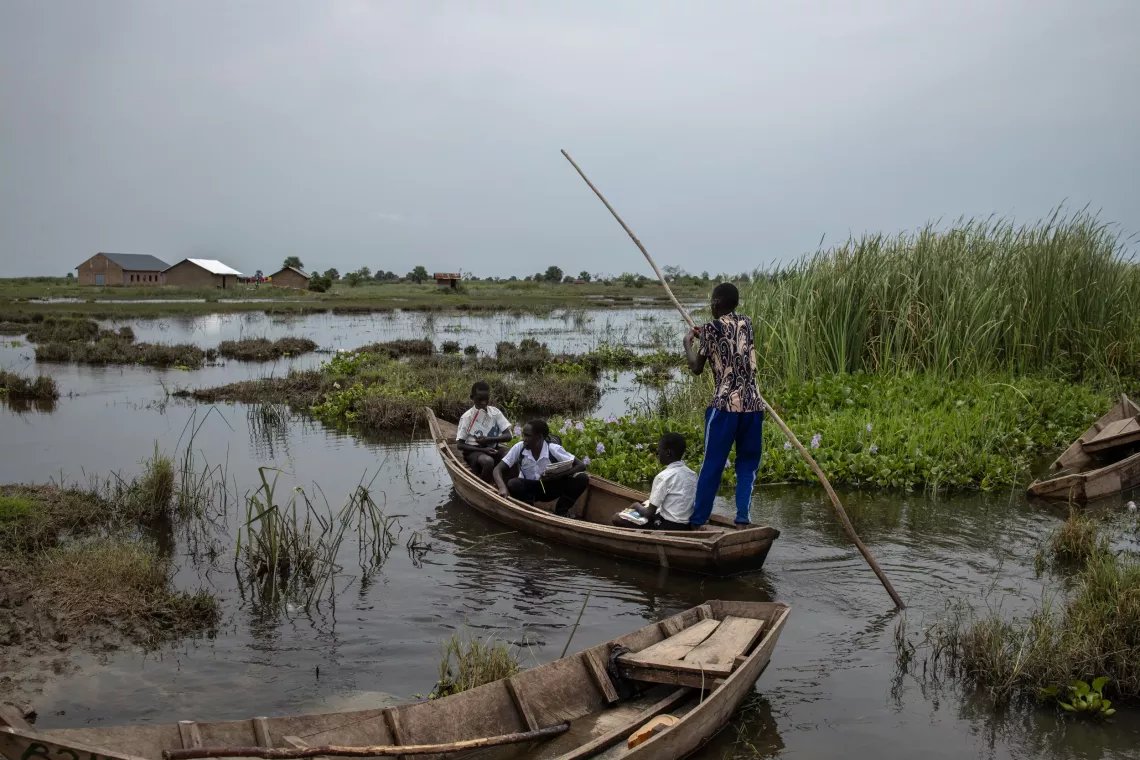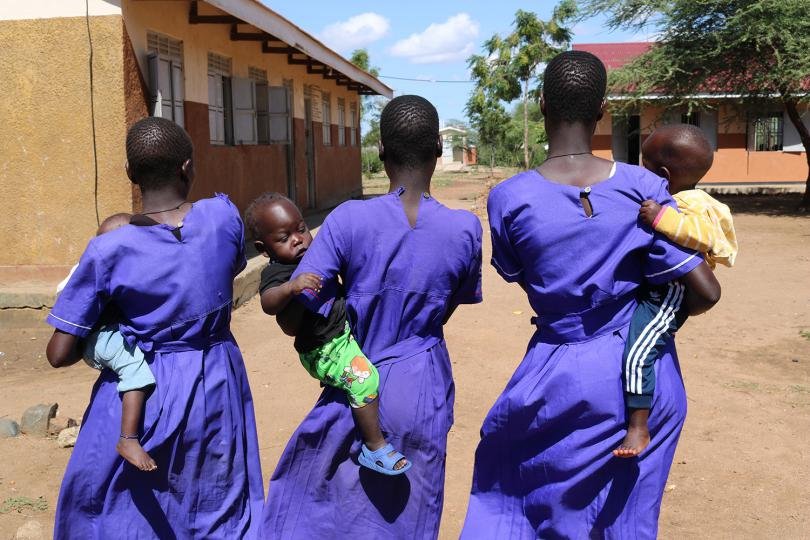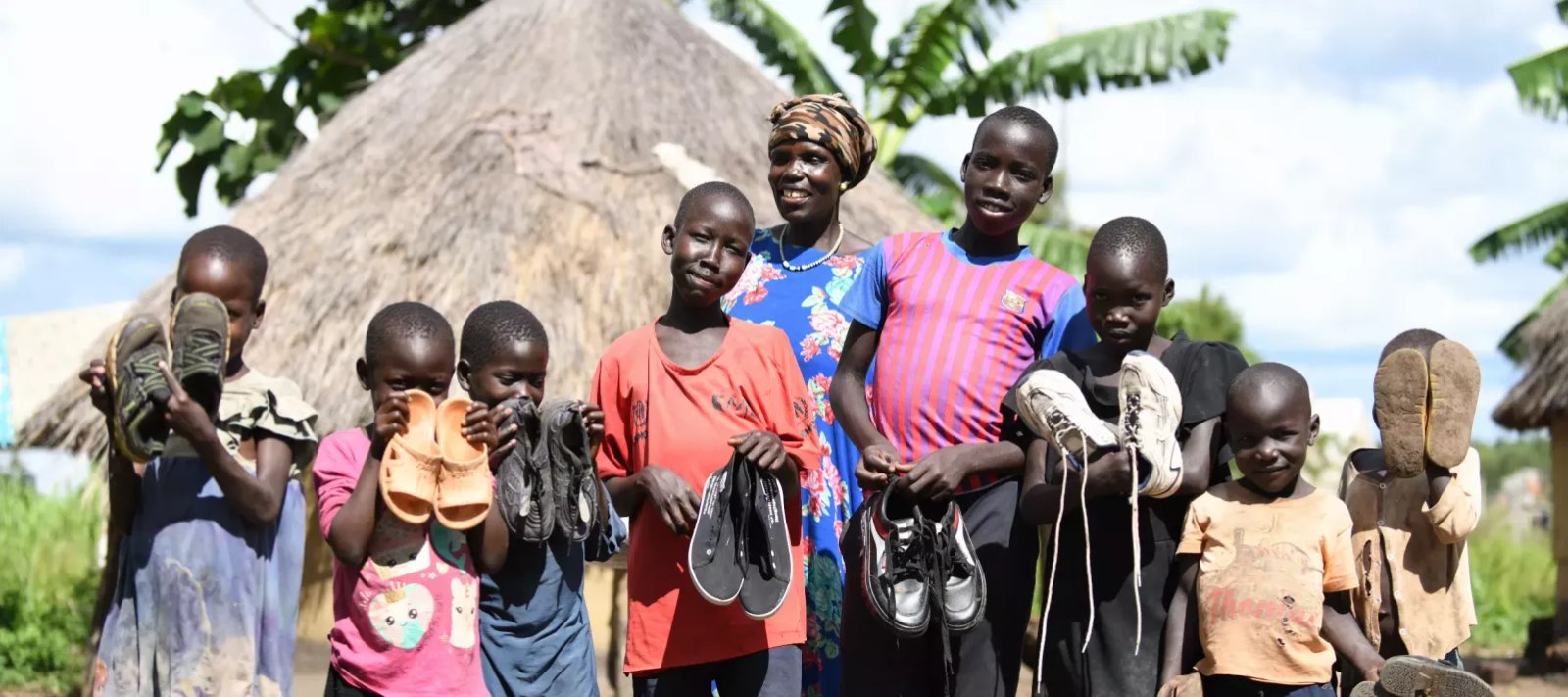
How WASH programme improved the lives of learners at Lomukura Primary School, Kotido District
Lomukura Primary School, located in the semi-arid plains of Kotido Municipality, faced significant challenges due to water scarcity. For students like Namoyi Viola and Lotyang Gabriel, both 16 and in Primary Seven, the daily trek to fetch water was a daunting one-hour journey. This exhausting task often left them too tired to focus on their studies.
Lotyang recalls, "The water was so far away. Sometimes the villagers wouldn't share, and we would end up thirsty, sharing water with animals." This struggle for basic resources not only affected their education but also their overall well-being. Namoyi highlights the particular challenges faced by girls during menstruation, saying, "We couldn't wash our clothes properly, and disposing of sanitary pads was a nightmare." This lack of sanitation led to feelings of embarrassment and hindered their ability to concentrate in class.
In 2018, the WASH in Schools program, initiated by UNICEF and supported by KOICA (Korea International Cooperation Agency), aimed to address these critical issues. The program focused on enhancing school environments by providing clean water, improved sanitation facilities, and hygiene education.
Immediate and Transformative Impact
The changes at Lomukura were swift and profound. The installation of a new water system eliminated the long treks for water, providing a constant supply of clean drinking water. Lotyang expresses his relief, stating, "Everything is good now. We can wash our hands before eating, and it feels refreshing." Namoyi echoes his sentiment, adding, "Finally, I can wash my reusable sanitary pads without worry. Now I can attend classes with confidence, stain-free."
The new WASH facilities, designed separately for girls and boys, have significantly improved the school environment. Afuzal Aziz, a teacher at Lomukura, has seen a remarkable shift in student focus. "Before, the children would spend an hour fetching water at midday, returning too tired to concentrate," he explains. "Now, with readily available water, they are more engaged in their lessons."
Wider Community Benefits
The impact of the WASH program extends beyond the school. A tap was installed for the nearby community, fostering shared resources and ensuring a sustainable water supply for both students and local residents.
Since the program began, the Karamoja subregion has witnessed substantial educational improvements. Overall enrollment has increased by 44%, with girls' enrollment rising by 38%. Additionally, there have been notable increases in Primary Leaving Examination passes among both boys (39%) and girls (35%).
Namoyi and Lotyang are living examples of this transformation. "We used to eat with dirty plates, which caused stomach aches," Namoyi recalls. "Now, with clean water for washing, we're healthier and can focus better on class."
Standing proudly by a sparkling tap, Lotyang sums it up: "This water has changed everything for us." Thanks to UNICEF and KOICA's WASH in Schools program, Lomukura Primary School, along with 99 other schools, now enjoys access to clean water and improved sanitation, empowering students to thrive and reach their full potential



